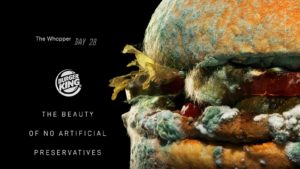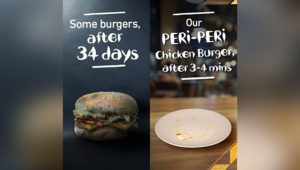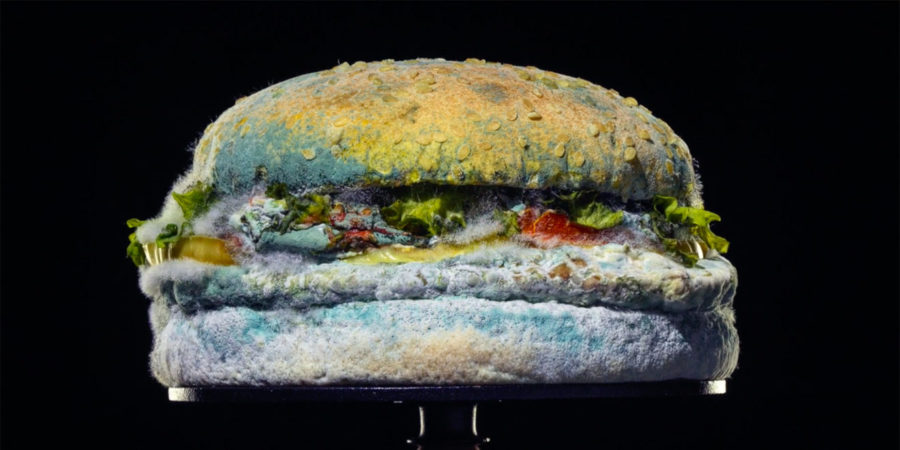Is Burger King’s latest advertising campaign ‘brave” and “disruptive” as claimed by some in the advertising industry or just a rotten idea? Burger King claim that the ad is part of a long-term strategy, but is it effective? It’s worth considering the campaign in terms of how we process information and whether the ad is likely to provoke the right response.
The advert promotes the fact that the product no longer contains artificial preservatives. All our knowledge about experience comes into the brain through the senses. On that point, the ad is arguably very effective, powerfully evoking the experience of a newly made burger, and then equally powerfully the experience of a mouldy 34-day old burger.

At the most basic level, our brains are wired to react strongly and negatively to any sensation that might signal a threat to our well-being. For example, even newly born babies reject bitter tastes reacting with an early form of disgust. This is a basic survival instinct that happens within 0.2 seconds of seeing, tasting or experiencing something that may pose a potential threat.
This all happens in our instinctive (System 1) brain before we even conscious of what we are experiencing. Put simply, most people’s reaction to the mouldy burger will be “yuk” and a feeling of disgust which may be milder in some and more intense in others, depending on their previous experiences with similar food.
The poster version of the ad will get attention, because of its novelty and threat potential, but 0.2 seconds may be all the attention it gets. For most ads, including Burger King’s, that is all the attention any creative content gets.
Our conscious reflecting brain is unlikely to get the chance or time to read the tagline which tells the real message of ‘healthier’ burgers, because most of the time nobody reads the copy on an image like this. Arguably, the TV version might keep people’s attention until message about no preservatives, but will this change their minds?

I don’t think so. Firstly, the implicit reaction to the ad is more visceral and emotional and will stay with people. Secondly, it is open for debate whether any association between burgers and healthiness is likely to change the way we think about the product.
Burgers are associated with sensory pleasure and enjoyment. Most people will not associate burgers with natural food or healthy lifestyles. Moreover, the need for no preservatives or additives is probably not an important driver of this category. Or maybe I am wrong and it is a missed unmet need?
The purpose of advertising is to build mental associations with brands and activate buying behaviour. If this ad creates any mental associations with Burger King, they are likely to be ‘mouldy’, ‘disgusting’ or perhaps nothing (as the advertising completely contradicts all other advertising in the category).

The ad is certainly distinctive, arguably disruptive, and may get a great deal of initial attention, but is unlikely to do anything for Burger King’s long-term business. Mouldy food is not associated with positive experiences and violates basic taste norms and survival strategies evolved over tens of thousands of years.
The ad has already created a response from other brands, and not a good one for Burger King. In Singapore and Malaysia, Nando’s have already created a poster that uses a mouldy burger image next to an empty plate and proclaims, “Some burgers, after 34 days; our Peri-Peri Chicken Burger, after 3-4 minutes”.
Perhaps Burger King need some ‘fresh’ thinking?
[You can view the 45 second ad here.]






